
on
*sdílené články jsou řazeny od těch podle mě nejlepších po dobré

on

on hbr.org
Rituals — collective activities that team members regularly engage in and attribute meaning to — can make a big difference during change or transition. Research, which included a survey of 929 individuals from 60 countries and a field study in an advertising company, found that teams with more rituals experienced higher engagement, psychological safety, interpersonal knowledge, and job satisfaction. Find out how to make them work for you.

on hbr.org
Helping your team members gain visibility isn’t just essential for their growth and success — it’s vital for yours as a leader. Not only does it show your ability to nurture and develop potential, but it also demonstrates your managerial chops. Here are practical strategies for how to boost your team’s visibility. Valuable tips that you can utilize from day one.

on newsletter.pragmaticengineer.com
Who is this episode good for? Engineers looking This episode is ideal for engineers seeking advice on how to demonstrate their value to management and for those interested in professional growth. This episode features Michael Novati, Co-founder and CTO of Formation. Michael has eight years of experience at Meta, where he was consistently recognized as the top code committer for several years.

on hbr.org
In this classic HBR article, first published in 1980, Gabarro and Kotter advise readers to devote time and energy to managing their relationships with their bosses. The authors aren’t talking about showering supervisors with flattery; rather, they ask readers to understand that the manager–boss relationship is one of mutual dependence. Bosses need cooperation, reliability, and honesty from their direct reports. Managers, for their part, rely on bosses for making connections with the rest of the company, for setting priorities, and for obtaining critical resources. It only makes sense to work at making the relationship operate as smoothly as possible. Successfully managing your relationship with your boss requires that you have a good understanding of your supervisor and of yourself, particularly strengths, weaknesses, work styles, and needs. Once you are aware of what impedes or facilitates communication with your boss, you can take actions to improve your relationship. You can usually establish a way of working together that fits both of you, that is characterized by unambiguous mutual expectations, and that makes both of you more productive and effective. No doubt, some managers will resent that on top of all their other duties, they must also take responsibility for their relationships with their bosses. But these managers fail to realize that by doing so, they can actually simplify their jobs, eliminating potentially severe problems and improving productivity.

on read.highgrowthengineer.com
Today, I’ll share common mistakes I’ve made and have seen, along with a template to make writing your review easier. Examples and template included

on newsletter.weskao.com
If you're not regularly giving feedback, you're missing a chance to scale your judgment. Here's how to give high-quality feedback in as little as 1–2 hours per week.

on read.perspectiveship.com
How pausing and asking yourself — ”And then what?” — levels up your decision-making skill.

on www.ted.com
Career analyst Dan Pink examines the puzzle of motivation, starting with a fact that social scientists know but most managers don't: Traditional rewards aren't always as effective as we think. Listen for illuminating stories – and maybe, a way forward.

on open.spotify.com
Have you ever thought you can’t do something because you’re “not wired that way”? Neuroscientist Chantel Prat might challenge you to rethink your beliefs. Chantel dispels some sticky myths about right-brainers and left-brainers, shares her research on how learning to code depends more on verbal skills than math skills, and generates some hypotheses about Adam’s brain.

on www.miroslavudan.com
Pokud jste někdy slyšeli o zkratkách OKR (Objectives and Key Results) a BAU (Business as Usual), možná jste si řekli: „Další korporátní bull*hit, který zapadne do propadliště dějin.“ Ale realita je jiná – OKR i BAU jsou základy, které mohou vaši firmu vystřelit na Měsíc (nebo ji nechat potácet se v nekonečném kolečku přešlapování na místě).

on hbr.org
When our society talks about leaders, we focus on formal roles, such as the CEO. This view undervalues the role of informal leaders—team members who influence outcomes by the tone they set, how they conduct themselves, and how they interact with their peers. Their job title doesn’t include the word “manager,” but they play an outsize role in how teams perform. In this article, NFL great Tom Brady and Nitin Nohria, of Harvard Business School, present a set of principles that people in any realm can apply to help teams successfully work together toward common goals.

on open.spotify.com
Dr. Ayelet Fishbach is a psychology professor and an expert on the science of motivation. She will teach us how to set smarter goals and provide science-based strategies for reaching them.

on open.spotify.com
Psychologist Adam Grant stops by to talk with Maya about his new book “Hidden Potential: The Science of Achieving Greater Things.” They talk about how to filter out unhelpful feedback, the benefits of imperfectionism, and why we need to give soft skills more respect. One key takeaway? It is never too late to start!

on hbr.org
Few organizations provide strong guidance or training for managers on meeting individually with their employees, but the author’s research shows that managers who don’t hold these meetings frequently enough or who manage them poorly risk leaving their team members disconnected, both functionally and emotionally. When the meetings are done well, they can make a team’s day-to-day activities more efficient and better, build trust and psychological safety, and improve employees’ experience, motivation, and engagement at work.

on newsletter.eng-leadership.com
Use this guide to enhance your credibility and increase opportunities!
on www.seangoedecke.com
Why you can't skip to the top (but you can skip to the bottom): How do engineers become higher-status or lower-status at large tech companies? In other words, what determines who gets promoted and who doesn’t, or who gets assigned the exciting difficult work and who gets put on keep-the-lights-on maintenance duty?

on newsletter.eng-leadership.com
Ownership doesn’t happen by chance → it’s built through deliberate actions that leaders often overlook!

on hbr.org
Confronting direct reports about performance issues can feel overwhelming, especially for first-time managers, who may worry that sharing critical feedback could damage their relationship with the employee. But performance conversations, especially where you need to give critical feedback, don’t have to be scary. There are a few common mistakes to avoid when giving critical feedback. Being a great people manager is not about being a friend or being liked by everyone all the time — it’s about being a manager who cares about their employees and helps them get their job done.
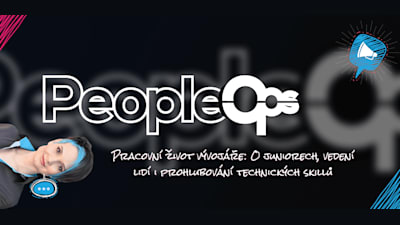
on www.izatlouk.cz
Nabízím zkratku k tomu podstatnému ze tří rozhovorů, které mapují potřeby v různých fázích života vývojářů. 🚀O juniorech s Honzou Javorkem. 🧑🎓Jak se z vývojáře stát manažerem s Honzou Mísařem a Davidem Bilíkem. 🧐O těch, kdo se do manažerských rolí nehrnou s Rikim Fridrichem a Alešem Roubíčkem.
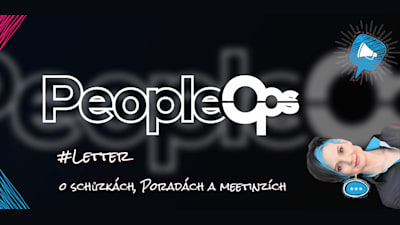
on www.izatlouk.cz
#Schůzky, #porady a #meetingy. Téma věčné nejistoty, respektive prostor pro ni. A přitom stačí tak málo, aby pro vás schůzky byly efektivním nástrojem, který vám vždy pomůže vaši práci dělat lépe. Jak? Čtěte první #PeopleOps #Letter!
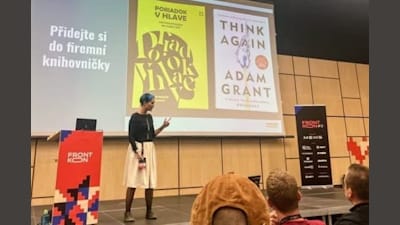
on www.izatlouk.cz
Na letošním FrontKonu jsem dostala příležitost přednášet. Základní pravidla práce s lidmi se můj talk jmenoval. A první otázka, co mi ráno ve foyer Riki Fridrich položil? Myslíš, že to tady bude někoho zajímat? Well, moje poselství bylo vlastně super jednoduché: Soft skills patří i do techu!
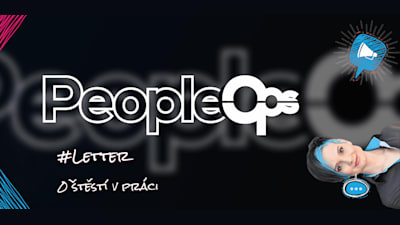
on www.izatlouk.cz
Dejte si malou ochutnávku z říjnového #PeopleOps #Letter. Tentokrát o štěstí a smyslu v práci. Tato ukázka jen naznačuje směr, kterým se na Forendors ubírám. V plné verzi najdete tipy na knihy, podcasty a články pečlivě vybrané pro všechny, které toto téma zajímá. #Doporučuji

on www.izatlouk.cz
Když se řekne krize nebo problém, v mnohých lidech to rovnou vyvolá úzkost, nebo strach. Pokud ale podnikáte, vedete firmu nebo tým, můžete si být jisti, že se s nějakou vyhrocenou, krizovou nebo problémy tvořící situací potkáte. Je lepší být na ni připraven! Jak? Přečtěte si!
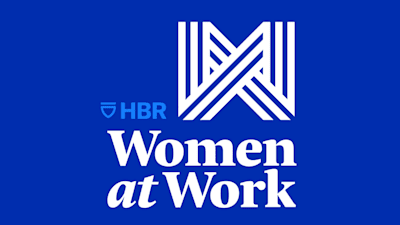
on open.spotify.com
Holding in anxiety, anger, or despair for the sake of appearing professional can feel impossible. When the emotions are just too much—your boss’s dismissive tone infuriates you, a direct report unloads, you can’t hold back tears in a meeting, a tragedy happens, and you’re leading an all-staff tomorrow morning—what do you do? Mollie West Duffy talks about the good that can come from being vulnerable with colleagues, and then Liz Fosslien returns to help us reassess where the line between vulnerability and oversharing is today.
Přihlásit se k odběru nově přidaných inspirativních tipů pomocí RSS
Vedete technologický tým, máte na starosti marketing či HR v tech firmě a rádi byste se (nebo nejen sebe) rozvíjeli, ale nevíte, kde začít? Máte pocit, že se potřebujete ponořit do dalších témat a jen zajít na nejbližší akce či meet-up nemusí být dost?
Vyplněním e‑mailu se přihlašujete k obsahovému newsletteru tvůrce a souhlasíte s obchodními podmínkami.
